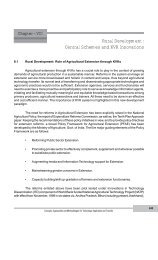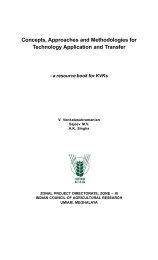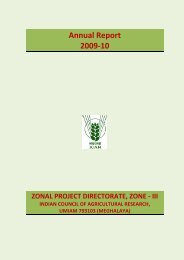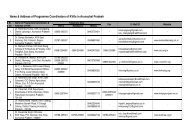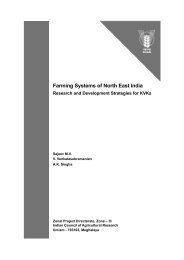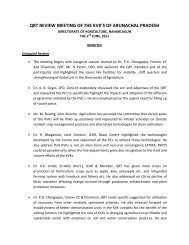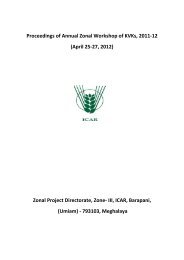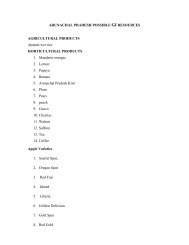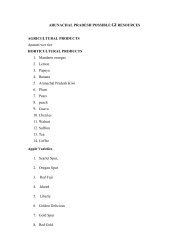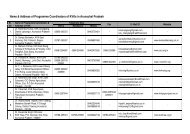Training Methodology for KVK Scientists - ICAR, Zonal Project ...
Training Methodology for KVK Scientists - ICAR, Zonal Project ...
Training Methodology for KVK Scientists - ICAR, Zonal Project ...
You also want an ePaper? Increase the reach of your titles
YUMPU automatically turns print PDFs into web optimized ePapers that Google loves.
V<br />
V. Venkatasubramanian, Sajeev, M.V. & A.K. Singha.<br />
make future improvements. ‘The terminal evaluation is primarily concerned with learner per<strong>for</strong>mance’<br />
which can be analyzed using two approaches namely norm-referenced and criterion-referenced.<br />
Under the norm-referenced evaluation, the gains are learning are determined based on pre and<br />
post training scores. The criterion-referenced evaluation is related to investigation of what was<br />
taught and what was learned.<br />
5.21.2.4 Impact Evaluation<br />
Impact evaluation refers to assessing the programme impact on the job-per<strong>for</strong>mance of the<br />
participants. It attempts to find answer to the following questions:<br />
a) What are the improvements in the per<strong>for</strong>mance of job as the result of training<br />
b) What are the benefits accrued to the participants and organisations as the result of<br />
improved job per<strong>for</strong>mance<br />
c) What are the problems in applying the skills learned in real work situation<br />
d) What can be done to enhance the application of newly learnt knowledge and skill in the<br />
work place<br />
5.21.3 Alternative Evaluation Models and Approaches<br />
An understanding of alternative models of evaluation is necessary to make right choice<br />
about the model to be followed in evaluation situations. A brief description of six evaluation models<br />
as discussed by Deshler (1997) is presented below<br />
5.21.3.1 Expert Model<br />
Under expert model, evaluation of a programme is done by a team of external or internal<br />
experts. Data collection and analysis is done using appropriate tools and techniques. The final<br />
report will contain recommendations to make improvements in overall planning and implementation<br />
of training programme so as to achieve desirable outcome.<br />
5.21.3.2 Goal-free Model<br />
This model originally developed by Scriven (1972) aims to analyze the impact of training in<br />
relation to the interest and utility of participants irrespective of stated goals of the programme.<br />
Evaluation of any programme strictly by its stated goals may be narrower in its scope and goal free<br />
148<br />
Concepts, Approaches and Methodologies <strong>for</strong> Technology Application and Transfer



